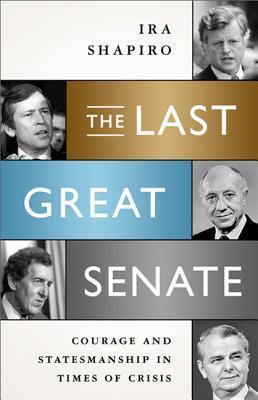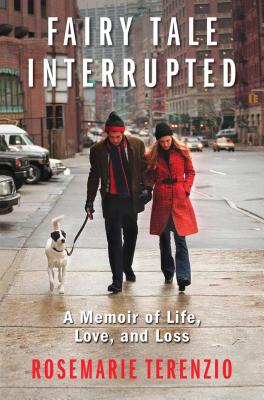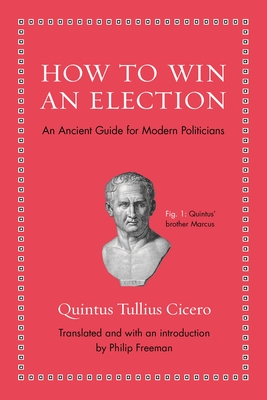Journalists have called the U.S. Senate an empty chamber; politicians have lamented that the institution is broken—yet the Senate was once capable of greatness. Senators of the 1960s and ’70s overcame southern opposition to civil rights, passed Great Society legislation, and battled the executive branch on Vietnam, Watergate, and its abuses of power. The right’s sweep of the 1980 elections shattered that Senate, leaving a diminished institution in its wake.
Ira Shapiro spent 12 years working for Senators Gaylord Nelson, Abraham Ribicoff, Thomas Eagleton, Robert Byrd, and Jay Rockefeller. The Last Great Senate is his vivid portrait of the statesmen who helped steer America during the crisis years of the late 1970s, transcending partisanship and overcoming procedural roadblocks that have all but strangled the Senate since their departure. The Last Great Senate is necessary reading for all those who wonder how the Senate used to work and what happened to the world’s greatest deliberative body.
To everyone else, John F. Kennedy Jr. may have been American royalty, but to RoseMarie Terenzio he was an entitled nuisance—and she wasn’t afraid to let him know it. RoseMarie was his personal assistant, his publicist, and one of his closest confidantes during the last five years of his life. In this, her first memoir, she bravely recounts her own Fairy Tale Interrupted, describing the unlikely friendship between a blue-collar girl from the Bronx and John F. Kennedy Jr.
Funny, moving, and fresh, her memoir is a unique account by the woman who was with him through dating, politics, the paparazzi, and his marriage to Carolyn Bessette. Her street smarts, paired with her loyalty, candor, and relentless work ethic, made her the trusted insider to America’s most famous man.
After John and Carolyn’s tragic, untimely deaths on July 16, 1999, RoseMarie’s whole world came crashing down around her, along with her hopes for the future. Only now does she feel she can tell her story in a book that is at once a moving tribute and a very real picture of her friend and employer.
Many books have sought to capture John F. Kennedy Jr.’s life. None has been as intimate or as honest as Fairy Tale Interrupted, a true portrait of the man behind the icon—patient, protective, surprisingly goofy, occasionally thoughtless and self-involved, yet capable of extraordinary generosity and kindness. She reveals what John really had in mind for his political future, how he handled media attention, and the reality of life behind the scenes at George magazine. She also shares how she dealt with the ultra-secretive planning of John and Carolyn’s wedding on Cumberland Island—and the heartbreak of their deaths.
How to Win an Election is an ancient Roman guide for campaigning that is as up-to-date as tomorrow's headlines. In 64 BC when idealist Marcus Cicero, Rome's greatest orator, ran for consul (the highest office in the Republic), his practical brother Quintus decided he needed some no-nonsense advice on running a successful campaign. What follows in his short letter are timeless bits of political wisdom, from the importance of promising everything to everybody and reminding voters about the sexual scandals of your opponents to being a chameleon, putting on a good show for the masses, and constantly surrounding yourself with rabid supporters. Presented here in a lively and colorful new translation, with the Latin text on facing pages, this unashamedly pragmatic primer on the humble art of personal politicking is dead-on (Cicero won)--and as relevant today as when it was written.
President Bill Clinton gives us his views on the challenges facing the United States today and why government matters—presenting his ideas on restoring economic growth, job creation, financial responsibility, resolving the mortgage crisis, and pursuing a strategy to get us "back in the future business.” He explains how we got into the current economic crisis, and offers specific recommendations on how we can put people back to work, increase bank lending and corporate investment, double our exports, restore our manufacturing base, and create new businesses. He supports President Obama’s emphasis on green technology, saying that changing the way we produce and consume energy is the strategy most likely to spark a fast-growing economy while enhancing our national security.
Clinton also stresses that we need a strong private sector and a smart government working together to restore prosperity and progress, demonstrating that whenever we’ve given in to the temptation to blame government for all our problems, we’ve lost our ability to produce sustained economic growth and shared prosperity.
Clinton writes, “There is simply no evidence that we can succeed in the twenty-first century with an antigovernment strategy,” based on “a philosophy grounded in ‘you’re on your own’ rather than ‘we’re all in this together.’ ” He believes that conflict between government and the private sector has proved to be good politics but has produced bad policies, giving us a weak economy with not enough jobs, growing income inequality and poverty, and a decline in our competitive position. In the real world, cooperation works much better than conflict, and “Americans need victories in real life.”
Funny, moving, and fresh, her memoir is a unique account by the woman who was with him through dating, politics, the paparazzi, and his marriage to Carolyn Bessette. Her street smarts, paired with her loyalty, candor, and relentless work ethic, made her the trusted insider to America’s most famous man.
After John and Carolyn’s tragic, untimely deaths on July 16, 1999, RoseMarie’s whole world came crashing down around her, along with her hopes for the future. Only now does she feel she can tell her story in a book that is at once a moving tribute and a very real picture of her friend and employer.
Many books have sought to capture John F. Kennedy Jr.’s life. None has been as intimate or as honest as Fairy Tale Interrupted, a true portrait of the man behind the icon—patient, protective, surprisingly goofy, occasionally thoughtless and self-involved, yet capable of extraordinary generosity and kindness. She reveals what John really had in mind for his political future, how he handled media attention, and the reality of life behind the scenes at George magazine. She also shares how she dealt with the ultra-secretive planning of John and Carolyn’s wedding on Cumberland Island—and the heartbreak of their deaths.
How to Win an Election is an ancient Roman guide for campaigning that is as up-to-date as tomorrow's headlines. In 64 BC when idealist Marcus Cicero, Rome's greatest orator, ran for consul (the highest office in the Republic), his practical brother Quintus decided he needed some no-nonsense advice on running a successful campaign. What follows in his short letter are timeless bits of political wisdom, from the importance of promising everything to everybody and reminding voters about the sexual scandals of your opponents to being a chameleon, putting on a good show for the masses, and constantly surrounding yourself with rabid supporters. Presented here in a lively and colorful new translation, with the Latin text on facing pages, this unashamedly pragmatic primer on the humble art of personal politicking is dead-on (Cicero won)--and as relevant today as when it was written.
President Bill Clinton gives us his views on the challenges facing the United States today and why government matters—presenting his ideas on restoring economic growth, job creation, financial responsibility, resolving the mortgage crisis, and pursuing a strategy to get us "back in the future business.” He explains how we got into the current economic crisis, and offers specific recommendations on how we can put people back to work, increase bank lending and corporate investment, double our exports, restore our manufacturing base, and create new businesses. He supports President Obama’s emphasis on green technology, saying that changing the way we produce and consume energy is the strategy most likely to spark a fast-growing economy while enhancing our national security.
Clinton also stresses that we need a strong private sector and a smart government working together to restore prosperity and progress, demonstrating that whenever we’ve given in to the temptation to blame government for all our problems, we’ve lost our ability to produce sustained economic growth and shared prosperity.
Clinton writes, “There is simply no evidence that we can succeed in the twenty-first century with an antigovernment strategy,” based on “a philosophy grounded in ‘you’re on your own’ rather than ‘we’re all in this together.’ ” He believes that conflict between government and the private sector has proved to be good politics but has produced bad policies, giving us a weak economy with not enough jobs, growing income inequality and poverty, and a decline in our competitive position. In the real world, cooperation works much better than conflict, and “Americans need victories in real life.”




No comments:
Post a Comment